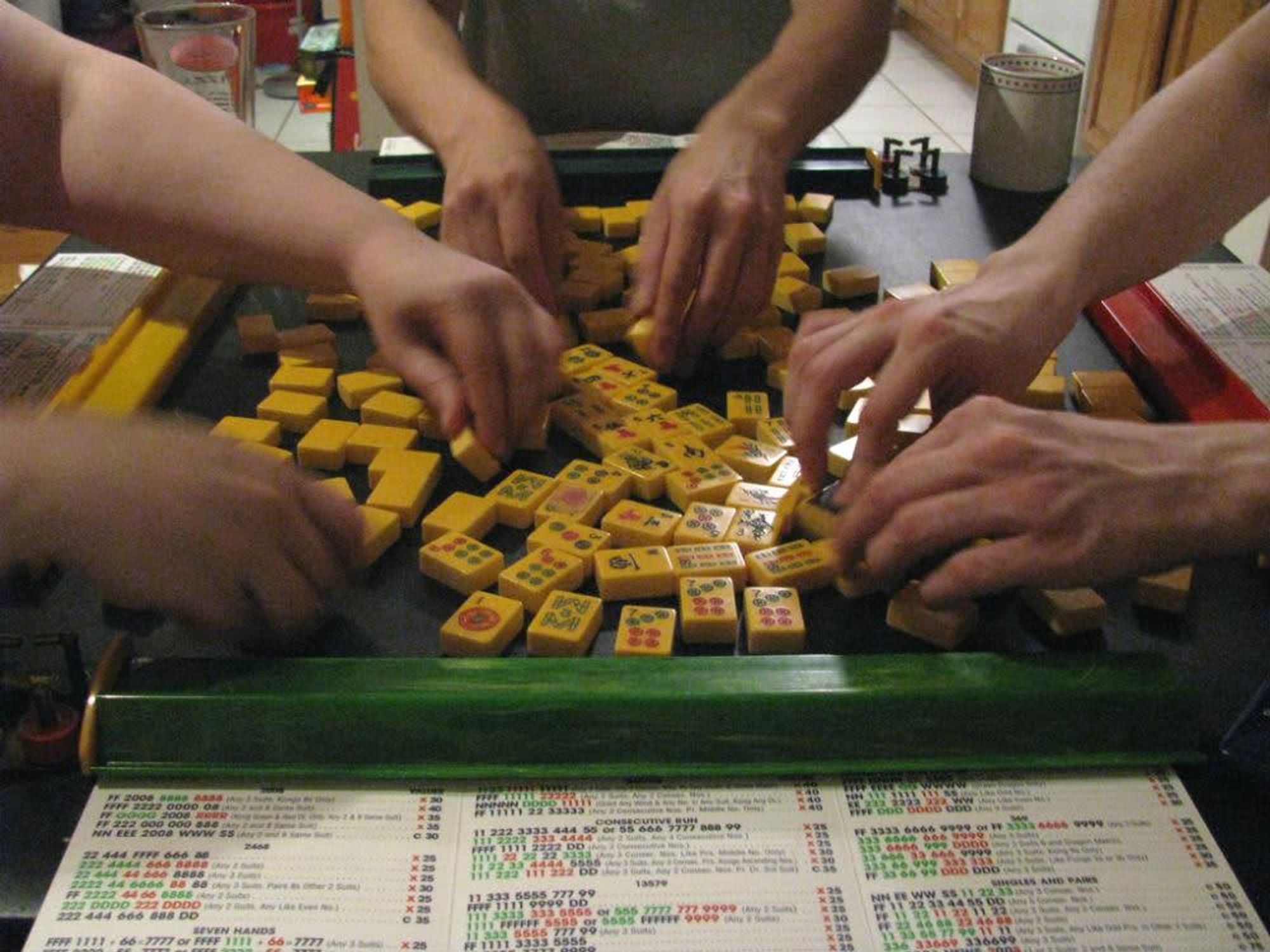Summer in the City
Unlocking the mysteries of the mah-jongg set in Dallas

Editor's note: Dallas resident Stacy Breen is an intrepid explorer of local culture with an instinct for making nifty discoveries. She's contributing a weekly column on her cool finds.
Summers are the time when we don't have to adhere to a schedule, but I have one standing appointment, and that’s my weekly date with the mah-jongg ladies.
If you're not familiar, mah-jongg is an old-school game you play with tiles; it's often compared to rummy and bridge.
I had never even seen a set of mah-jongg tiles until a few years ago. I was drawn to it because it looked orderly, and I like order, even though I’m unorderly. It's also a visual game. You have to find patterns and sequences. I respond to things visually. I need arrows and pictures.
The Jewish Community Center hosts classes and sessions organized by its seniors department. But it required a membership, and I didn’t want to pay $80 a month to play mah-jongg. There's also a Facebook page where games taking place around Dallas-Fort Worth are posted.
There was a group of moms doing it in Lake Highlands for a while, but that broke up when one of the founders started doing roller derby. You need at least three people to play, but playing it in foursomes is better.
So I went a year without playing. Then a year-and-a-half ago, I was at Half Price Books when I heard tiles clanking together. I knew that sound. I said, "Ahhh, that sounds like mah-jongg tiles." I used my echo location to find them.
It was a group of ladies, all 70 to 80 years old. They said I could join them. So now, I play with them every Monday from 12:30 to 3:30 pm.
I guess I'm a quick study, because I've taken on this role of teaching other people to play. There's another group in Little Forest Hills I've been teaching to play, as well. I want to bring mah-jongg back.
Mah-jongg originated in China and first caught on in America in the 1920s. For some reason, it's popular in the Jewish community, but I don't know why. The people in my Monday group aren't Jewish, they're all different — one is even French. They met while taking a class at a local community college, and have been playing for about 10 years.
What we play is called American mah-jongg. One week, a woman from China sat down to watch us play, and she said that the Chinese version was completely different. The American version has a National Mah Jongg League, and they send out rules every year that you have to follow.
Whatever the version, you're still working with combinations and patterns. It's like pattern-making. It's not usually something you can learn right away — although we did once have a 12-year-old boy who sat down to play, and he got it right away. His mom didn't get it, but he did. He was gifted visually and instantly understood the patterns and the way they worked.
We have people who stop all the time and ask us, "What are you doing?" "What are you playing?" When I run into friends, it's like I've been caught. Yeah, this is what I do on Monday afternoons. But I think it's good for your brain. You're thinking in another way; it's like a puzzle.
If you've ever been to the Little Havana neighborhood in Miami, people will go watch the Cuban guys play dominos, and sometimes it's like that at Half Price Books. People will stand over and watch you while you play mah-jongg.

 Fried rice and chicken at Dallas Spicy Chinese Cuisine. Photo courtesy of Dallas Spicy
Fried rice and chicken at Dallas Spicy Chinese Cuisine. Photo courtesy of Dallas Spicy